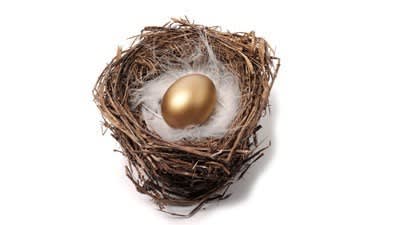Cashed up SMSF property investors face higher tax rate for excess super contributions
With the end of the financial year less than three weeks away, cashed-up property investors should be cognisant of the amount of the money they contribute to their funds.
The ATO has issued a reminder that there caps on the amount you can contribute to your superannuation each financial year that are taxed at lower rates.
If you contribute more than these caps you may have to pay extra tax.
The tax on non-concessional (before-tax) contributions that exceed the current $25,000 cap is 31.5% (plus 15% paid on your behalf by your super fund) while the tax on concessional (after-tax) contributions that exceed the current $150,000 cap is 46.5%.
Subject to government changes being passed in parliament, from July 1 2013 the government will increase the concessional contributions cap to $35,000 if you are 60 years old or over.
Individuals aged 50 and over will be able to access the higher cap from 1 July 2014.
These contribution cap limits may particularly apply to property investors who have disposed of an asset and wish to invest some of the proceeds into their self-managed super fund.
Other changes set to take effect from July 1 2013 are to allow withdrawals from super fund of any excess concessional contributions made from 1 July 2013 and that excess concessional contributions to be taxed at the marginal tax rate rather than the top marginal tax rate.
Investors though will need to know the difference between concessional and non-concessional contributions.
Concessional contributions apply to before-tax contributions while non-concessional contributions apply to after-tax contributions.
Types of concessional (before-tax) contributions include:
- employer contributions, such as compulsory employer contributions paid by your employer, any additional pre-tax super contributions your employer makes, salary sacrifice payments made to your super fund, other amounts paid by your employer from your pre-tax income to your super fund, such as administration fees and insurance premiums
- contributions that you are allowed as an income tax deduction, such as contributions you make if you are self-employed (to claim a tax deduction for your personal super contributions, you must first complete a notice of intent to claim deduction in the approved form and give it to your super fund)
- notional taxed contributions if you are a member of a defined benefit fund some amounts allocated from a fund reserve.
The ATO also warns that if you decide to split your before-tax contributions and give some to your spouse, these contributions count towards your cap.
Types of non-concessional (after-tax) contributions include:
- non-concessional (after-tax) contributions that your employer makes on your behalf from your after-tax income
- contributions your spouse (including a same-sex spouse) makes to your super fund, unless your spouse makes the contributions because they're your employer
- personal contributions that are not claimed as an income tax deduction
- contributions in excess of your concessional (before-tax) contributions cap
- contributions in excess of your capital gains tax (CGT) cap amount
- most transfers from foreign super funds, excluding amounts included in your fund's assessable income.
Your age affects the amount of the concessional (before-tax) contributions cap, how the cap applies and what options you may have.
The ATO provides an online guide to super contributions.
